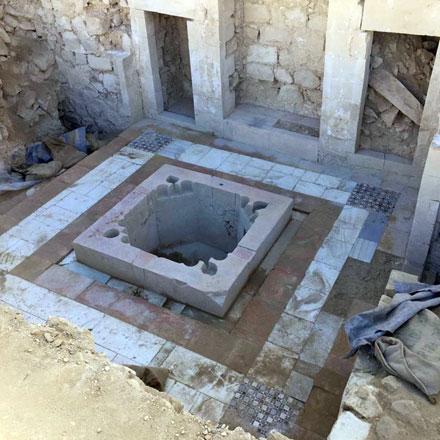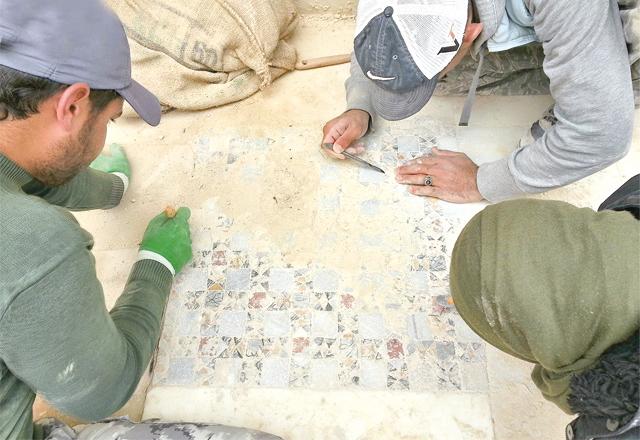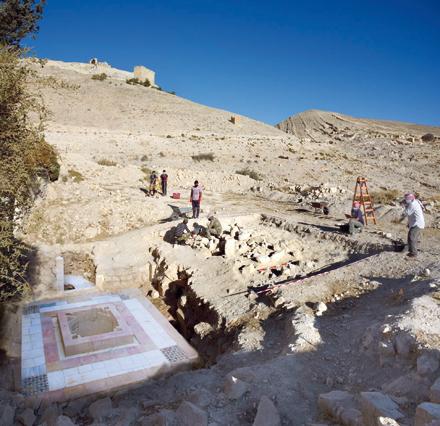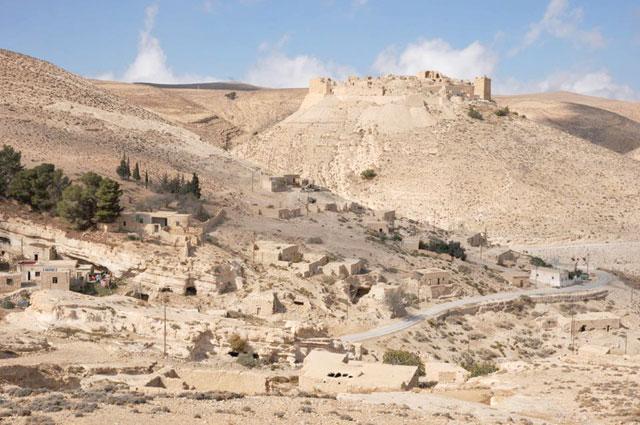You are here
Farmer accidentally unearths ‘unique’ medieval building in Shobak while ploughing farmland
By Ahmed Bani Mustafa - Nov 29,2018 - Last updated at Nov 29,2018

In this undated photo, excavations of the discovered building’s courtyard can be seen (Photo courtesy of Al Rai)
AMMAN — Contrary to most of Jordan’s historical sites dating back to the medieval period, the recent discovery by one Jordanian farmer in Shobak, south of Jordan, is actually not a medieval military building.
Most of the uncovered historical sites from that period are castles, barracks and forts, but this exception stands out as an oddity among a handful of buildings constructed in Jordan during that era.
While Fayez Rawashdeh was cultivating his land near the Shobak Castle, 220 kilometres south of Amman, parts of the building were accidentally unearthed.
“I was ploughing the land when I began uncovering parts of what I thought was a building... it turns out it was a building,” the local farmer told The Jordan Times on Thursday.
“When I started uncovering arches and walls, I stopped and decided to inform the authorities,” he said.
“As we speak, works are under way,” he said, in reference to the excavations initiated by the Department of Antiquities, in cooperation with an Italian team of archaeologists from the University of Florence.
“It is a civilian building, dating back to the Ayyubid-Malmuk era (1170-1516 AD), which makes the discovery even more interesting,” Director of the Maan Antiquities Department Ashraf Rawashed said. “And it is exceptionally well-preserved; it is unique.”
The building features a number of arches, a courtyard with a fountain in the centre, a mosaic-adorned floor, a bath and pottery pipes, Rawashdeh elaborated.
The farmer’s 2-dunum plot of land will be acquired by the government to ensure protection of the discovery, as it will be added to Jordan’s list of archaeological sites, Director Rawashdeh said.
In the meantime, excavations paused until the owner and the government work out a price for the land, which the farmer argues should not be less than JD80,000.
However, Director Rawashdeh said that the government will seize the land by authority of a “defence order” issued by the prime minister, if necessary.
“The government usually pays the highest assessment price for any acquired land,” he added.
“The value of my land has increased with the discovery, and I will not sell it for the prices they offered me; I make around JD7,000 a year from working the land,” the farmer contended.
“It is worth much more than they initially offered me, both in terms of revenue from cultivation and the value of the discovery in and of itself.”
Related Articles
AMMAN — The Italian archaeological mission to Jordan's Medieval Petra recently concluded its 2018 excavation season in Al Jaya village
IRBID — The findings of the Italian archaeological mission in Jordan were highlighted at the 15th International Conference on the History an
AMMAN — Besides its military role, the Shobak Castle used to stand as an important commercial centre during the Ayyubid and Mamluk periods,
















